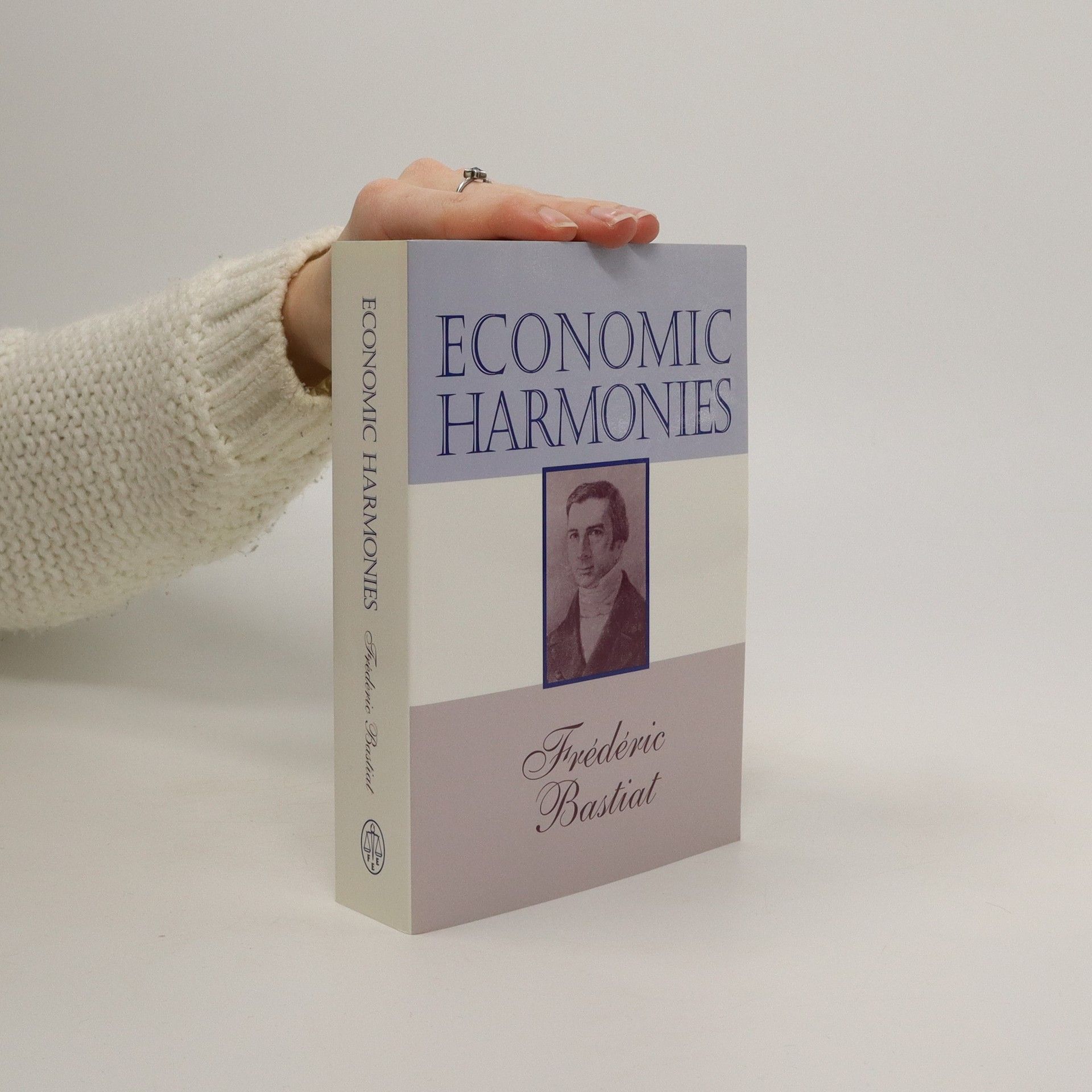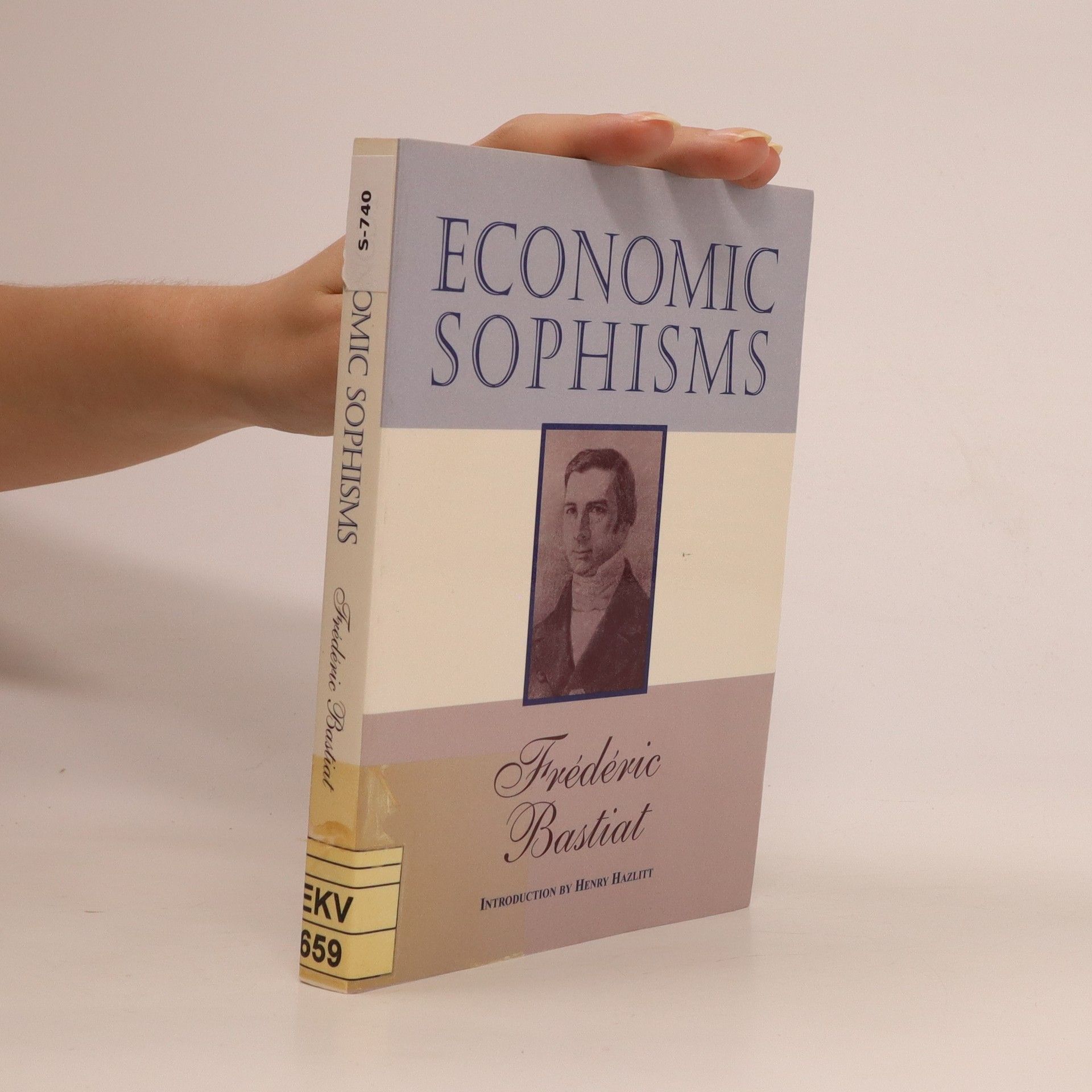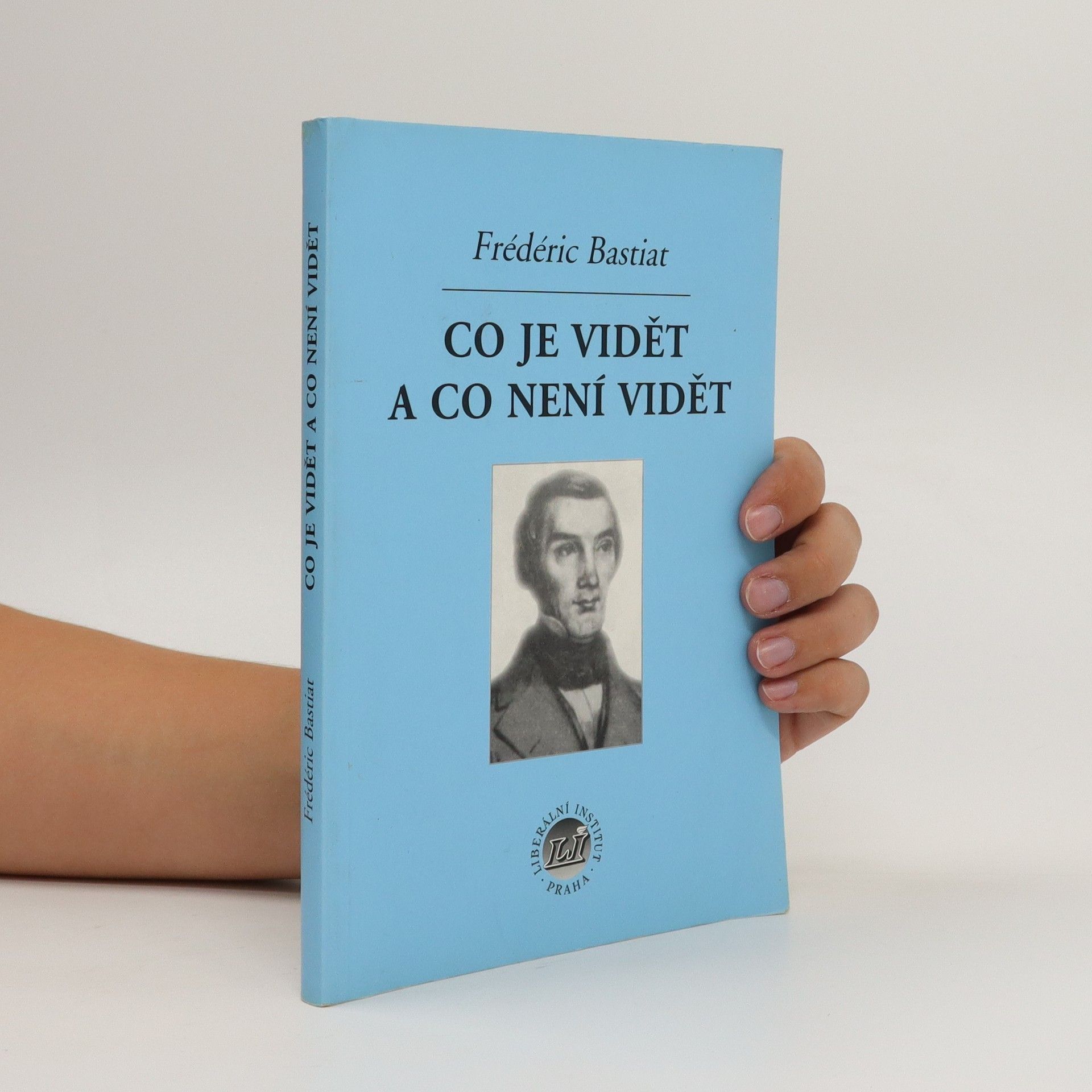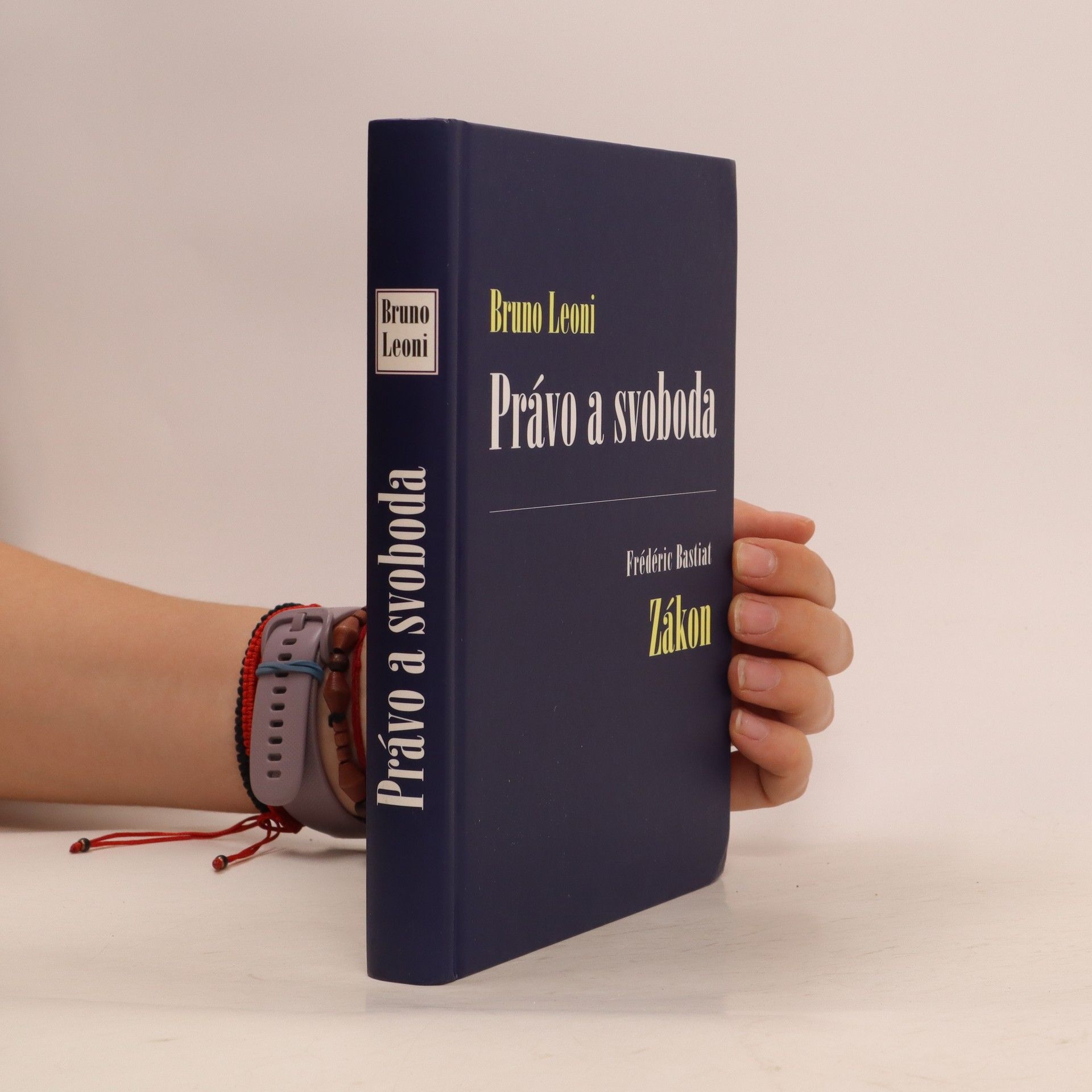What gives this work its unique quality and places it among the classics of economic literature is not only the logical rigor with which each fallacy is demolished, but the highly original and striking way in which the author uses wit, irony, satire, dialogue, and apologue to reduce erroneous ideas to patent absurdity, as, for example, in his famous petition of the candlemakers for protection against the competition of the sun.
Frédéric Bastiat Books
Frédéric Bastiat was a French classical liberal theorist and political economist. His work focuses on economic principles and liberty. Bastiat explored the relationship between government and the economy, advocating for free markets. His writings are valued for their clarity and persuasive power.







This is the 1972 edition of The Foundation for Economic Education, Inc. (copyright 1950), translated by Dean Russell of The Foundation staff.
An inspiring exposition of the natural harmony that results when people are free to pursue their individual interests.
THAT WHICH IS SEEN AND THAT WHICH IS not seen
- 116 pages
- 5 hours of reading
Delve into Frédéric Bastiat's economic insights that distinguish between visible and invisible consequences in economic actions. This annotated edition features a thoughtful introduction by Gary Furnell, enhancing the text's relevance and clarity. Additionally, a foreword by Peter Fenwick, a specialist in Austrian economics, provides further depth, making this classic treatise not only a study of economic principles but also a rich resource for understanding broader philosophical implications.
Grundlagen der Ökonomie: Das Wesentliche von Frédéric Bastiat
- 256 pages
- 9 hours of reading
Frédéric Bastiat, économiste, homme politique et magistrat français, est né en 1801 à Bayonne et mort à Rome en 1850. Libéral classique, farouche défenseur de la liberté sous toutes ses formes, il démontre dans les Sophismes économiques les bienfaits de la liberté et les méfaits de la contrainte dans les échanges économiques. Frédéric Bastiat nous rappelle des vérités éternelles, car la nature humaine est immuable. Internet, la monnaie numérique, la mondialisation ne modifient en rien la finalité de nos é nous produisons, nous échangeons parce que nous y trouvons notre intérêt. Les Atemporels, c'est une collection qui réunit des oeuvres qui ne vieillissent pas, qui ont une date de publication mais pas de date de péremption. Car elles seront encore lues et relues dans un siècle. Préfacé par Simone Wapler
Voluntarismus
Aufsätze, Texte und Zitate über die Freiheit
S touto knihou se čtenáři otevírají dva právem nejslavnější Bastiatovy eseje. Co je vidět a co není vidět brilantně vystihuje podstatu ekonomického uvažování a mělo by být pevně zabudováno v základu veškerého přemítání o ekonomických otázkách. Zákon, který v sobě kondenzuje základní témata liberálního smýšlení devatenáctého století a především je – na rozdíl od dnešní legislativy – ve svém sdělení jasný a přímý, by pak měl tvořit jádro úvah o uspořádání státu a jeho vztahu k občanům.Obsah:Co je vidět a co není vidětObchodní bilanceZákonVlastnictví a zákonOkrádání a zákon
Frédéric Bastiat, který patří k téměř neznámým autorům a v učebnicích ekonomie se o něm navzdory jeho rozsáhlému dílu většinou nedočteme, vycházel při sepisování svých textů z metodologického základu, který by mu mohli mnozí současní ekonomové, ale také novináři i politici (všechna tato povolání Bastiat vykonával) závidět - byl jím zdravý rozum. Ano, takové myšlenky se rozvíjely ve Francii v polovině minulého století. A jelikož myšlenky vycházející ze zdravého rozumu nemohou na rozdíl od komplikovaně vyhlížejících moderních sofismat zastarat, mají i českému čtenáři po téměř 150 letech mnohé co říci. Ve sbírce esejů, která je uvedena obsáhlou studií doc. Jana Pavlíka, nalezneme mimo hlavního eseje Co je vidět a co není vidět, který dal název celé sbírce, také slavné eseje Petice výrobců svící, Dva systémy etiky, Obchodní bilance (přetištěný v Laissez Faire říjen 1998) a výňatek z Bastiatovy hry Tři konšelé.... celý text
Právo a svoboda; Zákon
- 336 pages
- 12 hours of reading
Kde není právo, není svoboda. Právo však může být spíše nepřítelem než ochráncem. Původ právních norem hraje klíčovou roli v tomto problému. Liberální institut představuje přelomovou knihu italského právního teoretika Bruna Leoniho, která se zaměřuje na genezi práva. Hlavním přínosem je koncept tržního práva, který zdůrazňuje, že konkurence je nezbytná pro vznik dobrých zákonů. Současný monopol legislativy je v rozporu s tímto principem a Leoni ho přirovnává ke státně-socialistickému plánovači. Navrhuje, aby soudci byli součástí tržního prostředí a zbaveni výjimečnosti. Právník by měl fungovat jako vědec, jehož úkolem je hledání řešení pro případy předložené občany, podobně jako průmyslník konzultuje technické problémy s odborníky. Cílem je systém práva, který by byl vytvářen soudci a byl by nadřazený monopolní legislativě. Tento systém by soudce vystavil konkurenčnímu tlaku, což by vedlo k rychlejší a kvalitnější spravedlnosti. Publikace, která upadla v zapomnění, je v českém vydání doplněna analýzou Carla Lottieriho a spisem Frederica Bastiata. Kniha provokuje k přemýšlení o současném stavu a stojí za přečtení.



